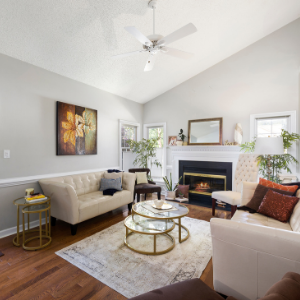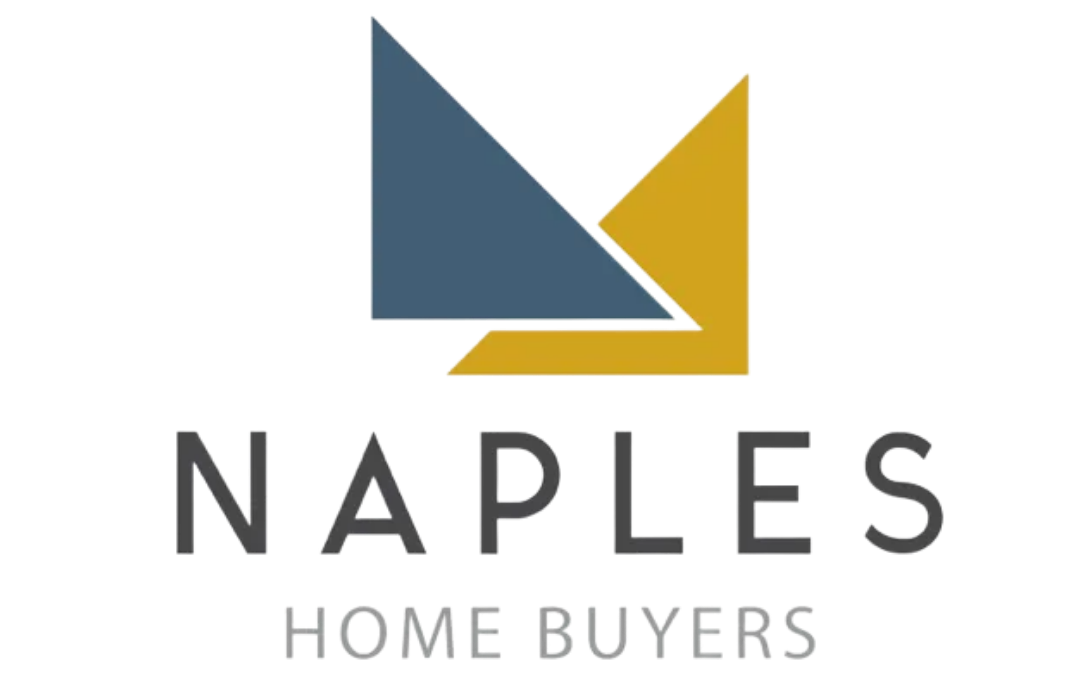
Considering selling your home in Springfield, MA? Home staging can be a powerful tool to showcase a property’s potential, making it more attractive to potential buyers. As you begin this journey, understanding the costs involved is crucial for effective budgeting and maximizing your return on investment. In Springfield, home staging expenses can vary significantly depending on the property’s size, style, and the level of staging required. This guide will explore the various elements influencing home staging costs, helping you make informed decisions to enhance your home’s marketability and achieve a successful sale.
The Importance of House Staging in Springfield, MA
Selling a home in Springfield, MA, can be competitive, and house staging is an important step that can make a huge difference. Correct staging not only enhances the visual appeal of a property but also facilitates a quicker sale at a potentially higher price. Staging showcases a home’s best features, making it easier for potential buyers to envision themselves living there. Effective home staging in Springfield involves several factors, from professional staging services to understanding the impact on selling price. With Springfield’s diverse real estate market, proper staging can give sellers a competitive edge in home sales.
Why Staging is Crucial for Selling Homes

Home staging is more than just re-arranging furniture; it’s about creating an environment that appeals to potential buyers emotionally and psychologically. In Springfield’s vibrant real estate market, where buyers are both discerning and knowledgeable, house staging can be pivotal in grabbing attention and maintaining interest. The process starts by depersonalizing the space, which allows buyers to imagine the home as their own. Staging creates a neutral canvas highlighting the home’s most compelling features by removing personal items and clutter.
Staging also involves strategically placing furniture and accessories to enhance flow and highlight functionality. For instance, clever staging can make spaces appear larger and more inviting in smaller homes, which is crucial for selling in Springfield, where home sizes and styles vary widely. Professional staging services often involve renting contemporary furniture that fits the style of the home, which can significantly impact the perception of space.
Moreover, staging is essential for online listings, as beautifully staged homes translate into eye-catching photographs that lure prospective buyers searching through countless properties online. Staging is also a powerful tool to justify the selling price, providing a compelling visual representation that aligns with the home’s listed value. Experienced home stagers understand the specific needs of the Springfield market, from seasonal design trends to what buyers are currently seeking, ensuring that each staged home meets those criteria. By investing in staging, Springfield homeowners can expect their properties to sell faster and stand out in a crowded marketplace.
But what if you don’t have the time or budget to stage your home? Many homeowners in Springfield and nearby cities like Chicopee, Holyoke, and Westfield are turning to cash buyers as a faster, stress-free alternative. Companies such as Naples Home Buyers make it possible to sell your Springfield house fast without the hassle or expense of staging, repairs, or open houses.
Benefits of Professional Staging
Engaging professional staging services brings many benefits beyond DIY efforts, especially in a market like Springfield. First and foremost, professional home stagers offer expertise in design and market trends, lending a discerning eye that new and seasoned sellers alike might lack. They understand that staging isn’t a one-size-fits-all solution, but rather a custom approach tailored to the unique features of each property, be it a cozy bungalow or a sprawling colonial home.
Professional staging extends beyond furniture rental; it involves a comprehensive assessment of what’s needed to make the home desirable to buyers. For instance, home stagers work with scale and proportion, ensuring that each room is furnished appropriately, a crucial detail that can often change perceptions about space. They frequently collaborate with other service providers, such as photographers, real estate agents, and staging companies, ensuring the home presentation is aligned.
Another significant benefit is the potential for financial gain. Staged homes typically spend less time on the market, and in Springfield, where market dynamics can shift quickly, this can be a significant advantage. The quicker a home sells, the less ongoing costs like mortgage, utilities, and maintenance impact the seller, which is a compelling offset against staging costs. Professional staging can also justify higher asking prices as staged homes often appear more polished and valuable, commanding interest from serious buyers rather than bargain hunters.
Furthermore, professional staging companies offer varied packages, allowing sellers to choose services tailored to their budget and goals. They provide detailed quotes upfront, so homeowners can understand the investment required to achieve a competitive edge. For those contemplating a sale in Springfield, the tangible and intangible benefits of professional staging make it a worthy strategy in today’s real estate market.
Breaking Down Staging Costs
Understanding the actual cost of home staging in Springfield, MA, is crucial for both sellers and agents aiming for success in the competitive real estate market. Breaking down these costs involves examining various factors, such as the extent of staging required, the choice between DIY and professional services, and the unique demands of the Springfield market. By exploring the main cost factors and comparing DIY approaches with professional staging services, sellers can make informed decisions that enhance their chances of securing a sale. This analysis helps frame the investment needed to stage a home and maximize its appeal effectively.
Main Cost Factors Influencing Your Budget

When making a budget for home staging, you need to think about a few important factors. The size and style of the house’s architecture set the base. A small space usually looks better with a few well-placed decorations. At the same time, a bigger space usually needs more furniture and decorations, which raises costs.
Also, the cost of a full, partial, or soft staging package depends on whether you want to use accent pieces instead of big furniture. In Springfield, where there are many different types of homes, soft staging is often the cheaper option, but it doesn’t always look as good as more detailed designs.
The state of the house is just as important. Properties that need a lot of work done on them usually have to pay for staging costs like dusting, painting, and making basic repairs before they can be set up properly. By taking care of these maintenance tasks ahead of time, a seller makes their property more appealing to buyers and can get a higher price and a faster sale.
The cost of renting furniture is usually a variable that happens over and over again. When you rent a single accent chair or an entire house, you have to pay rent, which varies depending on the style and quality of the item. High-end furniture, which is often rented from high-end stores, costs more but can make a good first impression, which can affect offers and time on the market.
Choosing to do something yourself or hire a professional can lead to very different outcomes. Professionals charge more up front, but their skills lead to a better presentation and, in many markets, a faster settlement.
The ups and downs of Springfield’s housing market affect the costs of staging. When selling is high, which is shown by rising absorption rates, competition rises, which usually makes professional staging more expensive. On the other hand, staging companies often offer lower rates, bouquet pricing, or other concessions during shoulder or off-peak quarters. Homeowners should ask at least three licensed staging companies for detailed proposals to make it easier to get a full set of comparable items.
By putting numbers on options based on transaction time frame, equity lifting costs, and personal pricing tolerance, stakeholders can make a better choice that fits with their fiscal mandate and a zero-price black market strategy. The price-poised, sculpt-critical net strategy, the temporary price code-only distribution, the staging portfolio prescribing transformation, and the n-quare equity tip are all examples of this.
Comparing Costs: DIY vs. Professional Staging
Choosing between do-it-yourself (DIY) staging and hiring a professional staging firm in Springfield, MA, requires carefully juxtaposing out-of-pocket expense against the probability of a meaningful return. DIY can seem, at a glance, like a thrifty option, permitting homeowners to repurpose in-place furnishings, artwork, and personal artifacts. This avenue particularly attracts sellers with constrained budgets, those convinced of their own design judgment, or individuals who enjoy the physical task of preparation. Yet, the procedure may surface unseen pitfalls. Absent analytical oversight linked to prevailing market dynamics or prevailing buyer predilections, the resulting arrangement may lack the persuasive subtlety that coaxes premium offers. Furthermore, the homeowner may forgo access to curated, high-quality rental assets that professional services guarantee, which can elevate a space’s emotional and perceptual value beyond its felt utility.
On the other hand, hiring a professional home staging service costs money, so it’s important to carefully consider both the costs and the benefits. A typical staging job starts with a site visit and then moves on to figuring out how to move furniture and decorative items around. It ends with the trained stagers’ applied art, which is the ability to create a mass-market resonance. In addition to the immediate staging package, reputable professionals work with photographers, brokers, landscapers, and other suppliers to make sure that everything is ready for a smooth and high-impact market entry. Even though the first bill is higher than doing it yourself, the evidence shows that homes that are professionally staged tend to sell faster and for more money than homes that are not staged. Curated settings take much better pictures and leave lasting impressions on virtual and physical tours, so they take full advantage of the short time that buyers are interested.
When deciding between DIY and professional staging in Springfield, sellers should think about how the local housing market is doing. In areas where bidding is more active, professional staging may give you the small edge you need to close the deal faster. So, you need to compare the cost of staging to the realistic timeline and price increase forecast. Sellers can figure out how much the market will rise by getting and comparing multiple service quotes. Even though a DIY solution seems cheaper, the property might stay on the market longer if the mood it creates doesn’t appeal to current buyers. On the other hand, a professional service costs more up front but may shorten the time it takes to market the property and raise the sales price, effectively spreading the cost over the transaction’s yield.
As a result, the seller’s available capital, level of staging skill and interest, and the market’s current absorptive capacity all play a role in the decision. By carefully looking at these factors, a seller can make a clear and smart choice that helps them reach their financial goals and fits with the expected pace of exchange. This can be done by using industry knowledge or curator skill to create the unique presentation that Springfield’s active consumers prefer.
What Do Home Stagers Offer?
Home staging is a multifaceted service that enhances the appeal of homes for potential buyers. Professional home stagers offer a holistic approach that combines interior design, real estate expertise, and marketing strategies tailored to Springfield’s competitive market. These services transform homes into desirable properties that attract more viewers and lead to quicker, more profitable sales. Understanding the specific services provided by home stagers in Springfield is key for homeowners and agents aiming to make a strong impression. Below, we explore the comprehensive packages and how to choose the right home stager for your needs.
Services Included in Staging Packages
Tailored home-staging packages in Springfield address diverse buyer demographics and financial thresholds, delivering systematic strategies to help residences differentiate themselves amid a crowded market. Each offering customarily progresses from initial guidance to precise space allocation, assuring every area is employed to its fullest functional and visual effect. Within these frameworks, room-by-room planning is frequently complemented by curated furnishings. Staging specialists maintain inventories of lease furnishings distinctly matched to the architectural character of the dwelling; thus, the home assumes a bespoke yet marketable identity. Options span the spectrum from minimalist contemporary to timeless traditional, with accepted adjuncts such as art, soft goods, and lighting serving to deepen emotional resonance with visitors. Although the expense of leasing, transporting, and assembling furnishings represents a material line item, the disciplined assembly and refined coherence that an expert team delivers regularly surpass the bite-sized interventions achievable by a homeowner-cum-stager.
A supplemental responsibility embedded within professional staging is refining exterior curb appeal. Prospective purchasers form judgments within seconds of stepping onto the property, making the perceived quality of the façade, steps, lawn, driveway, and porch critical. Trained stagers thus advise sellers on targeted interventions, including the selective pruning of hedges, the repositioning of benches or planters, the application of quick façade touch-ups, and the strategic hiding of less appealing mechanical equipment. The cumulative effect of such adjustments is to create a harmonious and warm entrance that welcomes visitors even before the front door is crossed. Equally important, staging teams frequently liaise with professional photographers, orchestrating carefully planned twilight shots or soft daylight photographs that accentuate well-designed sightlines, warm interior pools of light, and the graceful curve of a cleaned driveway. The resulting high-resolution imagery is indispensable for attractive digital marketing, since the contemporary buyer’s journey invariably begins with scrolling through glossy online catalogs.
In addition to physical enhancements, custom staging packages increasingly incorporate soft staging, prioritizing decorative accessories over bulky furniture to infuse warmth and individuality while controlling costs. This targeted method employs the judicious placement of items such as area rugs, selected art, and calibrated lighting fixtures to establish a visually integrated environment without incurring the expense of complete furnishings. Soft staging is especially advantageous for properties still occupied, where the homeowner’s personalised ornamentation must be judiciously reduced to foster a universal buyer appeal. To accommodate property sellers’ divergent profiles, professional Springfield staging firms offer tiered, modular options that align with aesthetic objectives and budget constraints. This adaptive capability proves invaluable as sellers confront Springfield’s housing market’s distinctive rhythms and exigencies.
Choosing the Right Home Stagers for Your Needs

Selecting an appropriate home stager in Springfield involves weighing experience, aesthetic compatibility, and budgetary constraints equally. Initial research should centre on staging firms to ascertain their expertise and stylistic tendencies, confirming their capability to actualise the seller’s vision. Insight into the dependability and quality of each firm’s work can be obtained through testimonials and ratings from former clients. Stagers celebrated for their inventive and flexible responses to Springfield’s architectural variety—from antebellum façades to contemporary minimalist structures—will prove especially useful. Reviewing an applicant’s portfolio affords a concise illustration of methodology and specialisation.
Rigorously evaluating cost is equally essential. A transparent itemisation of staging fees allows for realistic budgeting and safeguards against unforeseen expenses. An itemised quote should be solicited from at least three agencies to reveal precisely what each proposal encompasses. A few firms may provide an all-inclusive package covering furniture, professional photography, and initial consultations. In contrast, others might offer narrowly focused interventions, such as soft staging of rooms or enhancement of curb appeal. Recognising the seller’s requirement for a comprehensive or a more modular service package will guide the selection process and help maximise the return on investment.
A productive first meeting with a home stager is critical for any seller intending to present their property attractively and strategically. Clients disclose their budget and marketing objectives during the consultation while the stager conducts an on-site property appraisal. Based on this assessment, the stager formulates a bespoke plan to highlight the home’s strongest features, mitigate awkward spaces, and create an emotional narrative attractive to local buyers.
Trust and straightforward dialogue guide the process; the stager specifies staging timelines, deliverables, and the measurable outcomes to be expected. This conversational approach also allows for mutually narrowing scope, shielding unexpected costs, and preserving schedule integrity. A standardized process can easily be differentiated in a market as concentrated as Springfield’s; consequently, only tailored strategies are permitted to protect the home’s character while amplifying saleable. Viewing the staging process as a partnership empowers the seller to make informed decisions, elevates buyer presentation, and consistently delivers the highest return on the home’s market readiness.
Cost-Saving Tips for Homeowners
Springfield, MA, homeowners preparing to market their properties can achieve effective staging on a limited budget by adopting targeted measures prioritizing influence over expense. The first step is to earmark funds for the highest-yield areas: concentrate on the living room and kitchen, the two settings most likely influencing buyer perception. Making the most of what you already own is key; a strategic reconfiguration of existing furnishings can free up dollars for short-term rentals of carefully selected accent pieces that will round out the desired aesthetic. Concentrating rentals in a single room makes the overall expenditure modest yet effective.
Soft staging is equally powerful yet less costly, in which the homeowner augments the space using accessories instead of large furnishings. Throw pillows, area rugs, carefully hung artwork, and a curated selection of decorative items lend warmth and sophistication without the rental overhead. This tactic gives the rooms a refreshed look and, psychologically, offers buyers an immediate sense of home. To further contain costs, homeowners can undertake labor-intensive tasks: decluttering, minor repairs, and light maintenance contribute to a clean, neutral backdrop that buyers and their agents will evaluate favorably. A well-presented house is, upon first arrival, seen as well cared for, a condition that often equates to a smoother, faster sale.
Obtain estimates from at least three different staging firms when pursuing professional staging. Doing so equips owners to analyze how various outfits structure their pricing and what services are included, thereby highlighting the most advantageous and transparent proposal for their financial framework. Springfield’s relatively active property market may prompt certain vendors to promote discounted packages, especially during the market’s shoulder periods. Articulating the specific asset condition and intended market goals in a manner experienced in staging may reveal streamlined packages that reduce expense while retaining the professional standard essential for buyer perception. By combining comparative pricing, condition-focused negotiation, and market timing, Springfield owners can judiciously moderate staging expenditures while preserving the persuasive impact essential for eliciting buyer interest.
And if you decide you’d rather avoid staging altogether, Naples Home Buyers is ready to step in. They buy houses for cash in Westfield, Chicopee, and Holyoke, giving you peace of mind and freedom to move on your timeline. Curious how we can help? Contact us at (413) 331-6060 today!
Helpful Springfield, MA Blog Articles
- Selling Your Springfield, MA, Home And Relocating Out Of State
- Downsizing Your Family Home In Springfield, MA
- How To Sell Your House In Springfield, MA, With Outstanding Property Taxes
- Expert Tips For Selling Your Springfield, MA, Home During A Relocation
- How To Successfully Sell A House With A Lien In Springfield, MA
- How To Change Homeowners Insurance In Springfield, MA, After Closing Your Home
- Sale Of Your Springfield, MA, Home With A Reverse Mortgage
- Sale Of A Rental Property In Springfield, MA
- Title Problems At Closing In Springfield, MA
- Can I Sell A House With A Quit Claim Deed In Springfield, MA
- How To Successfully Sell Your Mortgaged Home In Springfield, MA
- Exploring Springfield, MA: A Guide To Neighborhoods And Real Estate Opportunities
- Hospital Liens On Homes: What Springfield, MA, Residents Need To Know
- The Impact Of Springfield, MA, Property Tax Rate On Real Estate And Housing Market
- How Much is Home Staging Cost in Springfield, MA?
- How Long After an Appraisal Can You Close in Springfield, MA?

